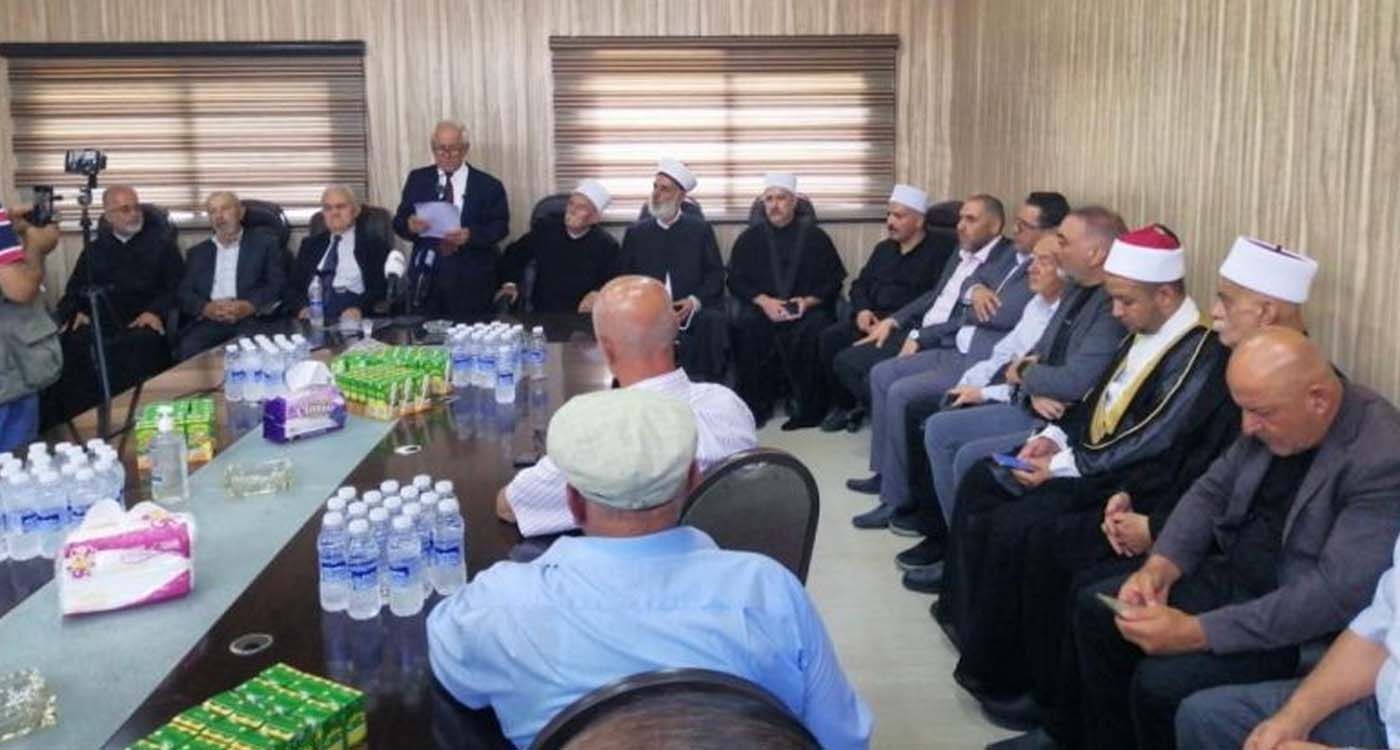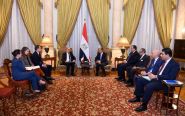
While Syria’s Sweida province remains on edge following July’s deadly clashes, the reverberations are deeply felt across the border in Hasbaya. In this part of southern Lebanon—as elsewhere in the Druze world—identity transcends borders.
The people of Hasbaya have lived this tragedy as their own, with Druze Sheikh al-Aql, Sami Abi el-Mona, calling repeatedly for unity, restraint, and wisdom.
Grief hangs over the district. Families mourn loved ones they were powerless to protect, cut down in violence that feels as close as kin.
Em Nabil’s cousin is married to a man from Sweida. When the news arrived, it was like a guillotine’s blow: her cousin’s entire in-law family had been wiped out in clashes between Bedouin tribes and the local Druze community.
“It’s a terrible loss, a wound that will never heal,” laments Em Nabil, her voice cracking. “My cousin is devastated. She’s lost everything. What happened over there, we felt it here, as if it happened in our own homes. Their blood is ours.”
In Hasbaya, the ties to Sweida aren’t just emotional, they’re familial, spiritual, almost elemental. Nearly every household has roots in Syria. Here, belonging transcends geography.
Every morning, Sheikha Em Khalil, now in her sixties, waits for a call.
“I wait for a sign from my niece,” she says, her eyes misty. “She just tells me, ‘We are still alive.’ That’s all we want to hear. The rest… is silence.”
Stories of shortages, militias, and sporadic fighting stoke a quiet dread.
Information spreads swiftly through social media and rushed phone calls, often the only lifeline between families divided by conflict.
The fears are many: concern for loved ones, access to basic needs, and the looming threat of forced displacement among people deeply rooted in their land and identity.
Quiet Solidarity, Instinctive Mobilization
In the face of helplessness, solidarity begins to take shape, quiet, yet resolute.
“We’ve collected medicine, money, clothes. It’s not much, but it’s our way of saying: we are here,” explains Rima, a member of a local association.
As threats mount against their kin in Syria—and far from the realm of political declarations—support takes the form of tangible action. Informal humanitarian convoys carrying food, essential medicine, and even fuel (now critically scarce in Sweida) regularly cross the border, braving treacherous roads and military checkpoints.
“We do what we can with what we have,” says Abou Fadi, a local entrepreneur who organizes these efforts with quiet determination.
“This isn’t politics. It’s brotherhood. It’s a matter of faith. When our brothers are hungry or wounded, we can’t look away. We can’t sleep peacefully.”
Donations come from all sides, from humble villagers giving away their last supplies to members of the diaspora wiring funds from abroad.
Young people, often more adept at navigating social media, play a crucial role in coordinating and gathering vital information.
“We figure out needs, we find the safest routes. It’s dangerous, but we do it for our families,” says a young man, his face solemn.
The Syrian tragedy does not stop at the border, it cuts into daily life.
“My cousin is trapped there. He can’t flee, and he can’t fight. We were preparing to attend his wedding, but everything was canceled,” says Samer, staring at the hills.
And beyond material aid, solidarity takes a spiritual form. Prayer vigils are being held across the district.
“It’s a sacred duty,” explains Sheikh Wissam Slika, a religious leader in Hasbaya. “The Druze faith teaches loyalty to the community—especially in times of suffering.”
Reception of Syrian Refugees Called into Question
The echoes of the clashes in Sweida have brutally fractured the local social fabric. The presence of Syrian displaced persons, once accepted, is now met with growing suspicion, fueled by images circulating on social media.
When videos began to surface showing Syrians, formerly settled in Hasbaya, fighting against the Druze in Sweida, shock rippled through the town. Emotion swiftly gave way to anger.
“We recognized faces. People we had helped and sheltered,” murmurs Sheikh Walid, a resident of Mimes, a small village near Hasbaya.
“Now we see them raising weapons against our kin… It’s unbearable.”
In the wake of these revelations, several Syrian families fled Hasbaya and the surrounding villages, fearing reprisals.
To prevent further escalation, the municipality imposed a strict 8 PM curfew on Syrian refugees. This rare and exceptional measure—still in effect—reflects both the seriousness of the situation and the local authorities’ determination to preserve civil peace.
"It’s a necessary, though difficult, decision," explains a municipal official. "The safety of our residents comes first. Tensions are running high."
Though painful, this restriction on movement is seen by much of the local population as a response to an internal threat undermining community trust.
Fraternity as a Shield
Summer in Lebanon is typically a season of joy—but not in Hasbaya, which remains cloaked in mourning. The district’s iconic festivals have been cancelled. In place of celebration, a day of mourning has been declared in solidarity with the victims of Sweida.
In the village of Bayada, sheikhs, local officials, and residents gathered to reaffirm their unity. The Druze doctrine of “protecting the community” takes on its full meaning in this tense context.
“We must act with wisdom,” said Sheikh Wissam Slika, representative of the Sheikh Akl in the Hasbaya region. “We must show solidarity without giving in to hatred. Defend our people without falling into rejection. The Druze community can only endure if it remains united and clear-minded, both here and there,” he added, referring to Sweida.
In a similar spirit, the Mufti of Hasbaya and Marjayoun, Sheikh Hassan Dali, received a delegation from the Democratic Gathering, led by MP Wael Abou Faour, at the Fatwa House. Discussions touched on various pressing issues, with both sides stressing the need to reject strife and work together to safeguard coexistence in Hasbaya and the villages of Arqoub.
“There is a genuine will to preserve calm here. Our stability is our most valuable asset,” affirmed the mokhtar of Hebbarieh.
A Silent Alarm
Between curfews, quiet departures, and persistent unease the Hasbaya district lives in a state of quiet alert. Every piece of news from Sweida is scrutinized, every rumor examined. Hasbaya today is a village on edge. Yesterday’s hospitality has given way to an unprecedented caution.
Yet amid the tension, one message rings clear: dignity and identity are not up for negotiation.



Comments